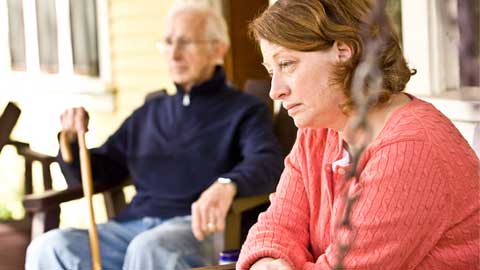
Dealing with an elderly parent can be a Jekyll and Hyde experience for family guardians.
On the other hand, increasing responsibilities ramp up caregiver stress and heightens tension within the family. Tension and stress increment when the parental figure is keeping up an occupation, tending to his or her own particular youngsters, drives a dynamic social life, and must go to look after the elderly relative.
“The tasks of caregiving – running errands, cooking, cleaning, home maintenance, taking your mom or dad to doctors – appointments often exact both an emotional and physical toll on the caregiver. In fact the pressures of caregiving are so great that 58% of caregivers show symptoms of clinical depression.”
To be an effective caregiver to your aging parent means staying alert to the warning signs of stress. Some of the common signs of caregiver stress include:
- Feelings of sadness
- Moodiness
- Excessive crying
- Low energy
- Feeling isolate
- Difficulty sleeping
- Over and under eating
- Withdrawal from family and/or friends
- Excessive wait gain or loss
- Anger towards the care recipient or other family members
“These signs are leading indicators of depression. Depression impacts not only your ability to care for someone else, it harms your mental and physical health, too. If you feel you need more help, you’re not alone. According to a study by Home Instead, the national in-home, elderly companionship and home care company, three out of every ten family caregivers agree they could use more help.”
Six Tips That Manage Stress and Avoid Caregiver Burnout
- Hire professional, non-medical caregiving assistance to give you important relief from the daily demands on you.
- Ask your family and friends to help. It’s less expensive than hiring someone and you know the qualify of care your parent will get.
- Get informed about your elderly parents condition. Contact disease specific support groups. They offer a wealth of information to help you understand what is happening to your loved one and what to expect in the future. Most have active caregiver support groups that can help you better cope with increasing stress.
- Get your loved one assessed. A geriatric care manager can provide an accurate needs assessment of your loved one. Doing so extends your caregiving abilities, can conserve family resources, and often helps prevent the need of a nursing home.
- Learn stress-management exercises such as yoga or tai-chi. The exercise is good for your overall health and the emphasis on inner balance and relaxation is good for your mental well-being.
- Take a break. Caring for an elderly parent is a job. Getting away from the daily grind allows you to recharge yourself. Make arrangements to take a few days off and arrange for help with family and friends, volunteers from church or professional caregivers.
Parental figure burnout is avoidable. To oversee guardian stress requires proactively dealing with yourself while dealing with your maturing parent.
With the right information, you can reduce caregiver stress, keep your life in balance, save money and get better care for your elderly parents.
Article source: http://ezinearticles.com/?Caregiver-Stress—6-Tips-to-Avoid-Burning-Out&id=3746282

